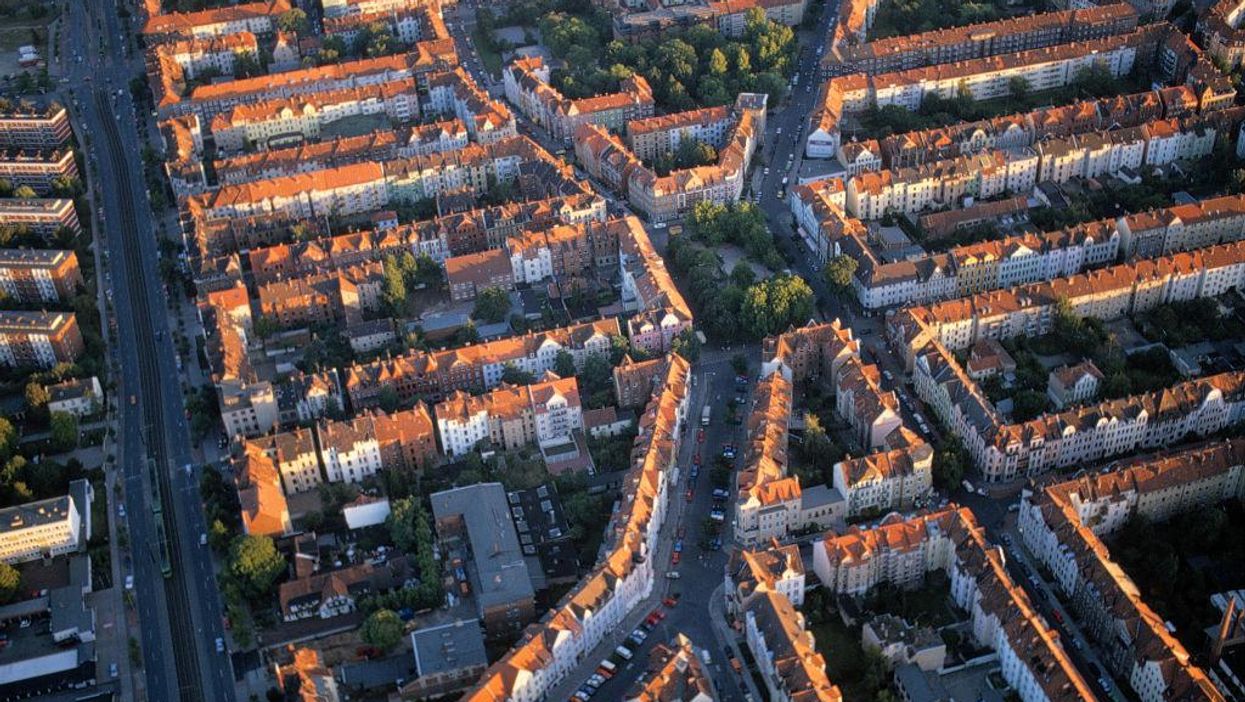
Mediacolors/Construction Photography/Avalon/Getty Images

Some of Germany's biggest cities are preparing for an energy crunch this winter by shutting off warm water, limiting heat, and switching off lighting.
The German city of Hanover is attempting to reduce its energy consumption by 15%.
Between Oct. 1 and March 31, Hanover's municipal buildings will not be allowed to be heated to a temperature over 68F. The city has banned the use of mobile air conditioning units and fan heaters.
The citizens of Hanover will be forced to take cold showers at city-run facilities. The German city will cut off hot water in public buildings, swimming pools, and gyms.
"The situation is unpredictable. Every kilowatt hour counts, and protecting critical infrastructure has to be a priority," said Hanover Mayor Belit Onay – who is part of the Green party. "We are facing hard times due to the Russian aggression on Ukraine. And as we see that there's a looming gas shortage, this is a major challenge for municipalities."
"I think everyone, not only the municipalities — the federal government also, and also every single person in Germany — is needed for this. Everyone has to save energy as much as possible so we can get through the winter," Onsay said. "Otherwise ... in December or January, we will have much bigger problems than lighting or the showers."
Hanover isn't the only German city limiting energy use.
Last week, the German city of Munich announced that it would turn off spotlights on its town hall. The city also shut off warm water at its municipal offices. Fountains in Germany's third-largest city would be turned off at night.
Nuremberg closed three of its four public indoor swimming pools run by the city.
"Vonovia, the country’s largest residential landlord, said it would be lowering the temperature of its tenants’ gas central heating to 17C (62F) between 11 p.m. and 6 a.m.," the Financial Times reported. "A housing association in the Saxon town of Dippoldiswalde, near the Czech border, went a step further this week, saying it was rationing the supply of hot water to tenants. From now on, they can only take hot showers between 4 a.m. - 8 a.m., 11 a.m. - 1 p.m. and 5 p.m. - 9 p.m."
The district of Lahn-Dill, near Frankfurt, turned off hot water in its 86 schools and 60 gyms until mid-September.
Last week, Berlin's senate voted to turn off the lighting of 200 monuments, buildings, and landmarks in the German capital of more than 3.5 million people to save electricity.
"In April, Berlin had announced measures to keep its outdoor swimming pools at two degrees below the weather-dependent standard temperature throughout the summer season," The Guardian reported.
Bettina Jarasch – Berlin’s senator for the environment – said, "In the face of the war against Ukraine and Russia’s energy threats it is vital that we handle our energy as carefully as possible."
Germany is one of the countries most heavily dependent on Russian energy.
In 2021, 34% of Germany's crude oil came from Russia and 53% of coal imported into Germany was shipped from Russia. Before the invasion of Ukraine, Germany received 55% of its natural gas from Russia, according to the New York Times.
Last week, Russian gas giant Gazprom PJSC declared that it would limit natural gas shipped through the Nord Stream pipeline to Germany down to 20% of capacity, Bloomberg reported.